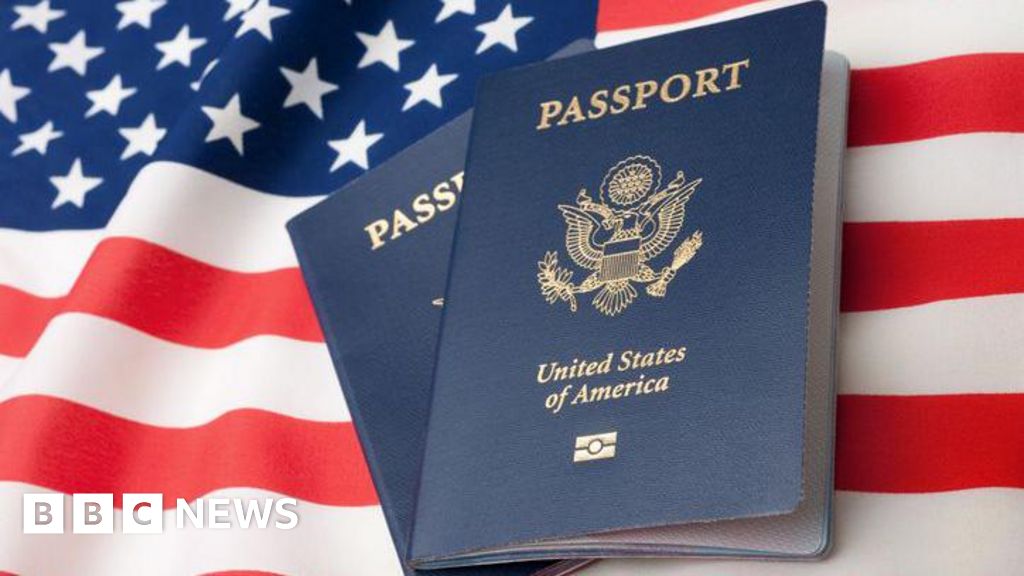- PolyPassport
- Posts
- This family went to Ecuador and bought a farm. They haven't looked back.
This family went to Ecuador and bought a farm. They haven't looked back.
After years of dreaming about South America, one American family finally took the plunge. Three years later, they have zero regrets.

When Brittany first traveled to South America at 16, she knew she'd return. What she didn't know was that she'd come back with her husband Blake and four kids in tow to start over on a farm in Ecuador.
The family had spent years circling the idea of moving abroad, always asking themselves the same question whenever life presented a change: "Is this the moment for South America?" The timing never quite worked until the pandemic hit.
Blake's disaster management job in Washington State was coming to an end, and suddenly a hypothetical became very real.

Brittany and Blake living out their South American dream in Ecuador. Photo courtesy of the family.
"We talked about South America so much that when we told the kids we were moving, they were just totally nonchalant," Brittany recalls.
The destination was never in question. It was always South America, and eventually, Ecuador.
They deliberately avoided Cuenca, where many American retirees cluster in comfortable familiarity. Instead, they chose the surrounding area of a city of 200,000 in the southern Andes, known for its vibrant music scene and relative safety.
Loja, Ecuador is “the Goldilocks city," Blake says. "Just right."
Within weeks of arrival, they made a decision that still makes them chuckle. They found a five-acre property on Facebook Marketplace and bought it after a lightning-quick visit. The property had all the fundamentals: water, power, a mature orchard, and sweeping views.

The family watches their new home take shape in the Ecuadorian mountains. Photo courtesy of the family.
They paid $100,000 for the land and around $80,000 to build their home, a total investment of roughly $180,000 for what would cost millions in their former home of Washington State.
"We could have bought land for $30,000, $40,000, or cheaper," Brittany notes. But infrastructure, they reasoned, was worth the premium.
Their legal pathway was Ecuador's Professional Visa, a relatively straightforward option for university graduates that requires no local job offer.
Through the program, they secured two-year temporary residencies which they then converted to permanent residency after 21 months, having met the condition that they spend no more than 90 days outside the country.
Like many other parts of Latin America, Ecuador’s visa landscape shows it is wide open to foreign residents. Non-Ecuadorians without university degrees can pursue an Investor Visa requiring $47,000 in real estate, bank deposits, or company shares.
The Rentista Visa only requires proof of $1,380 in monthly recurring income from any legal source. Each pathway leads to the same destination: permanent residency after 21 months, citizenship after three more years.
One of the family's most consequential decision involved their children's education. Four previously homeschooled American kids now walk 15 minutes down the mountain to attend the local school—150 students total, kindergarten through high school, instruction entirely in Spanish, no accommodation for English speakers.
It was, by any measure, educational immersion at its most extreme.
"I thought the first day the kids would run out of their classrooms and run home," Brittany recalls. Instead, they adapted.
Three years later, their eldest daughter serves as class president while maintaining top grades despite Spanish being her acquired language.
The transformation has been profound. "Our daughter in particular, she was very timid in the United States," Brittany observes. "And here she's just super bold and confident and dreaming about her future. She wants to be an ambassador now."

Blake enjoying the view from the terrace of their farm near Loja, Ecuador. Photo courtesy of the family.
Professionally, Blake and Brittany also had to pivot rather dramatically. Blake left his career in disaster management for part-time tech support, using his newfound free time to pursue farming and blacksmithing. Brittany discovered a niche coaching high-conflict divorced parents, specialized work that she wouldn't have discovered back in the U.S.
What makes their new life sustainable, however, are economics that seem to defy American expectations.
Monthly utilities run $10-50 for electricity, $3 for water piped from a national park waterfall, $2.50 for propane, $20 for fiber internet.
Restaurant meals for the entire family cost $20-30. Quality steaks sell for $2-3. Their mountain climate eliminates the need for heating or air conditioning entirely.
"In the U.S., even two people eating out for under $75 was challenging," Brittany observes.
Three years in, they've navigated past the honeymoon phase that shipwrecks many expat ventures. Their strategy from the beginning was to plant roots as if they were staying forever, regardless of future uncertainty. The approach seems to have worked.
"If you're miserable in the U.S., you might still be miserable here," Blake cautions. "But if Ecuador calls to you—if the culture and pace speak to you—follow that."
The family who discovered their farm on Facebook and wagered their future on South America is staying put. "We planted roots here," Brittany says.
And by most measures, those roots have taken hold.



